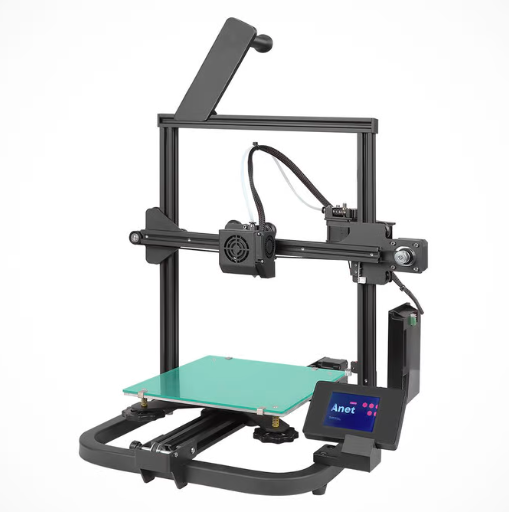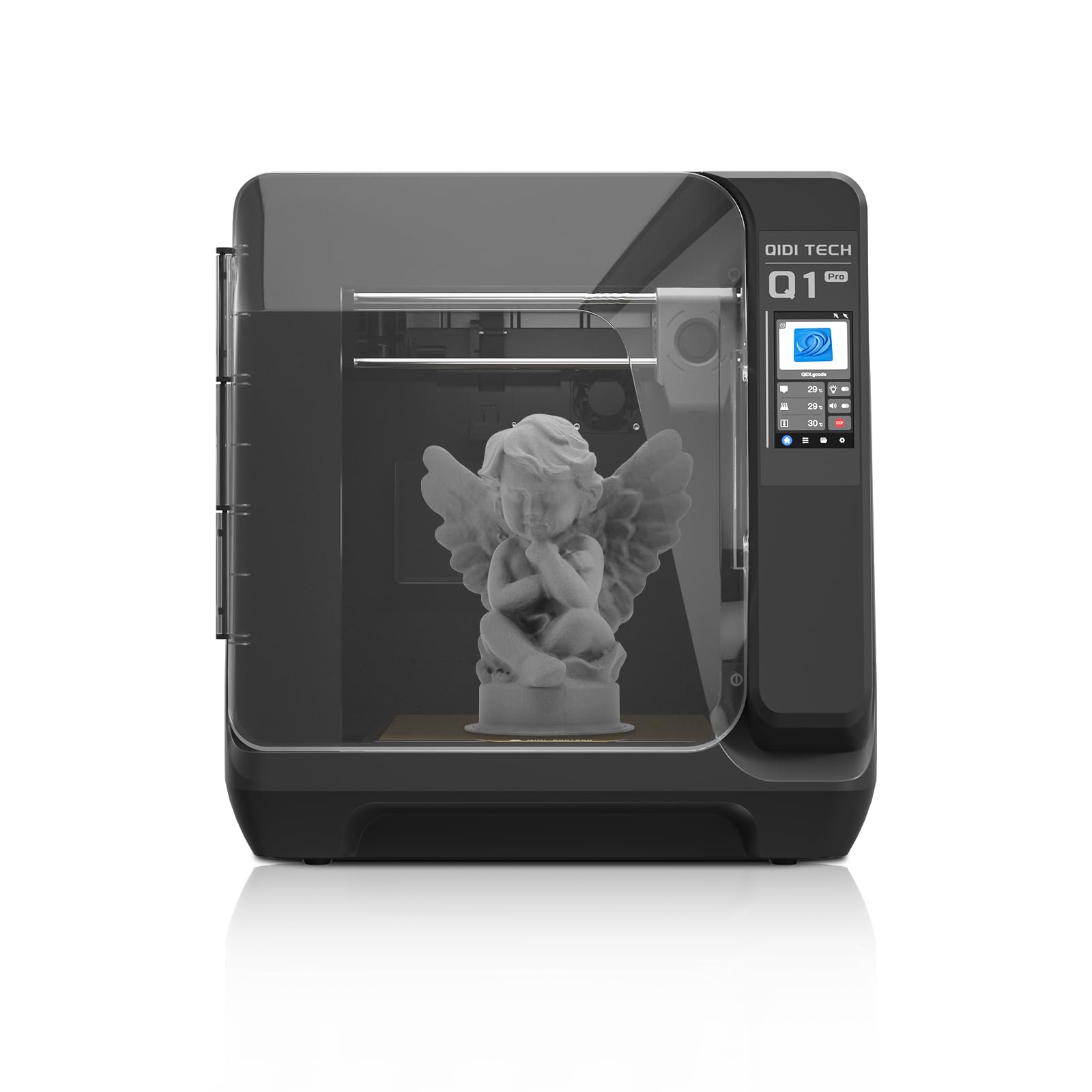Compare A8 V2 vs Q1 PRO
Comparison between the best 3D printers
Choose the best 3D printer at the best price. The cheapest 3D printers are here.
Buy a 3D printer here with 3D Fila.
 |
 |
|
| Model | A8 V2 |
Q1 PRO[BUY Q1 PRO] |
| Printing Material | Filament | Filament |
| Buy Filament for Anet A8 V2 | Buy Filament forQIDI Q1 PRO | |
| Estimated price | $129,00 | $449,00 |
| Manufacturer | Anet | QIDI |
| Release Year | 2021 | 2024 |
| Print Volume [mm] | 220x220x250 | 245x245x245 |
| Printer Size [mm] | 428x441x486 | 467x477x489 |
| Weight [kg] | 6,2 | 20 |
| Power Loss Recovery | NO | YES |
| Enclosed printer | NO | YES |
| Bed Leveling | Manual | Automatic |
| Filament End Sensor | NO | YES |
| Bed type | Heated | |
| Power supply system | Bowden | Direct Drive |
| Standard nozzle | 0,4 | 0,4 |
| Maximum Nozzle Temperature [°C] | 230 | 350 |
| Maximum Bed Temperature [°C] | 120 | |
| Maximum printing speed [mm/s] | 150 | 600 |
| Filament holder | YES | YES |
| Camera for supervision | NO | NO |
| Recommended filaments | PLA | PLA、ABS、ASA、PETG、TPU、PC、PA、PA-CF、PET-CF、PAHT-CF etc. |
| Recommended slicers | Cura, Simplify, Slic3r, IdeaMaker | QIDI Slicer/Cura/Simplify 3D/ORCA/PRUSA Slicer |
| Maximum Resolution [mm] | 0,1 | 0,1 |
| Processor | Cortex-A53,64-bit Processor | |
| Display | Display touchscreen 2,8'' | Touchscreen 4,3'' |
| Power Supply | 110/220V / 250W | 350 W |
| Connectivity | SD / USB | WiFi/USB Flash Drive/Ethernet Cable |
| Operating systems | Windows, Mac, Linux | Windows, Linux, Macbook |
| Date of registration in the system | 2022-11-10 | 2024-07-09 |
| Release date | 2021 | 2024 |
| Extra features | The Anet A8 V2 is a Cartesian-XZ type 3D printer with a build volume of 220 x 220 x 250 mm, Ender 3 design and V-slot assembly. It has a 32-bit motherboard and touchscreen interface, promising ease of use. It uses open source firmware and has thermal failure protection. It stands out for its cable organization and the absence of a heated bed, focusing on energy savings and PLA printing. It comes with an external power adapter, aiming at greater safety, especially for beginners and educational use. | The QIDI Q1 Pro 3D printer stands out for its Core XY structure and heating chambers that reach up to 60ºC, ideal for advanced materials such as ABS and Nylon. It features Klipper firmware, an automatic leveling system, a high-flow extruder with a double metal nozzle and a hotend that reaches 350ºC. It offers connectivity via Wi-Fi, USB and Ethernet, as well as a 1080p camera for remote monitoring and an intuitive touchscreen for easy operation. |
| Support for multiple colors and materials (AMS and CFS) | NO | NO |
Notes * |
||
| Cost-benefit | 6 / 10 | 8 / 10 |
| Hardware | 0.5 / 10 | 4.8 / 10 |
| Tela | . | . |
| Print volume | 3 / 10 | 3 / 10 |
| Performance | 1 / 10 | 5 / 10 |
| [BUY Q1 PRO] |
Conclusion |
| In comparing the Anet A8 V2 and the QIDI Q1 Pro, it is evident that both printers cater to different user needs and levels of expertise in 3D printing. The Anet A8 V2 emerges as an entry-level option, appealing to beginners or those on a tighter budget. Despite its lower price, it offers a decent print volume and basic features. However, it lacks several advanced functionalities, including power loss recovery, an enclosure, and automatic bed leveling, making it less suitable for complex projects or the use of a wider range of materials. Its performance is adequate for simple prints, but it may fall short for users looking to explore more challenging filaments or achieve higher-quality results. On the other hand, the QIDI Q1 Pro represents a more advanced choice, equipped with features that cater to serious hobbyists or professional users. Its higher price point reflects its superior capabilities, such as automatic bed leveling, a high maximum nozzle temperature, better build volume, and more robust connectivity options. It is designed to handle a variety of materials, including advanced filaments, and offers enhanced print quality and performance. Additionally, its Core XY structure and integrated features improve usability and print reliability, making it suitable for complex prints. Ultimately, the choice between the Anet A8 V2 and QIDI Q1 Pro hinges on individual needs. If affordability and simplicity are the primary considerations, the A8 V2 serves as a solid entry point. Conversely, those seeking advanced features, higher capabilities, and the potential for more complex materials will find greater value in the QIDI Q1 Pro. Therefore, potential buyers should weigh their budget against their 3D printing ambitions to make the best decision for their needs. |

